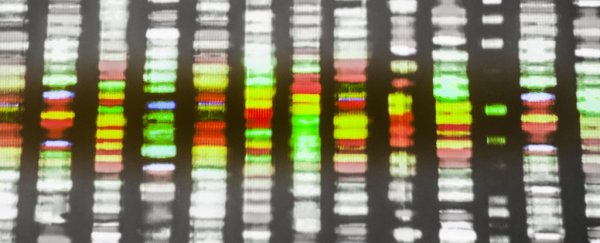A new genetic test that claims to predict male sexual orientation with up to 70 percent accuracy has attracted plenty of attention in the scientific community, but experts warn that the findings of the research may be unreliable.
Researchers in the US say that their new algorithm can determine whether a male is straight or gay by analysing epigenetic markers that affect gene expression – with a single saliva sample being all it takes to reveal which team you're playing for.
"To our knowledge, this is the first example of a predictive model for sexual orientation based on molecular markers," said one of the researchers, Tuck C. Ngun, from the University of California, Los Angeles.
Ngun and his colleagues conducted their study with the assistance of almost 50 pairs of identical male twins. Thirty-seven pairs of twins included one homosexual brother and one heterosexual brother, while a control group included 10 pairs of homosexual twins.
The researchers took samples of saliva from each of the participants to look for any differences between the homosexual/heterosexual twins that could constitute an environmental explanation for the divergence in their sexual orientation. Epigenetic markers – molecules that affect how DNA code is interpreted by cells – could be one potential indicator of this, given that the pairs' genetic sequences would be otherwise identical.
To help sort through the data, the researchers developed a machine learning algorithm called FuzzyForest, which identified nine small regions across the twins' respective genomes. This could then be used to predict whether the male participants were straight or gay.
"Previous studies had identified broader regions of chromosomes that were involved in sexual orientation, but we were able to define these areas down to the base pair level with our approach," said Ngun.
While the research has not yet been published, the findings of the study were presented last week at a meeting of the American Society of Human Genetics.
However, other experts in the area say considerably more research will need to be done before the claims made by Ngun's team can be backed up – with the study's limited sample size a primary cause of concern.
"[T]he study does not provide evidence for 'epigenetic influences on sexual orientation', but it appears to have identified candidates for further investigation and an epigenetic signature that has some predictive utility in twins," said Christopher Gregg, assistant professor of neurobiology, anatomy and human genetics at the University of Utah in the US.
"Overall, the importance of these findings will hinge on how reproducible they are in future studies that include larger groups of heterosexual and homosexual individuals."
